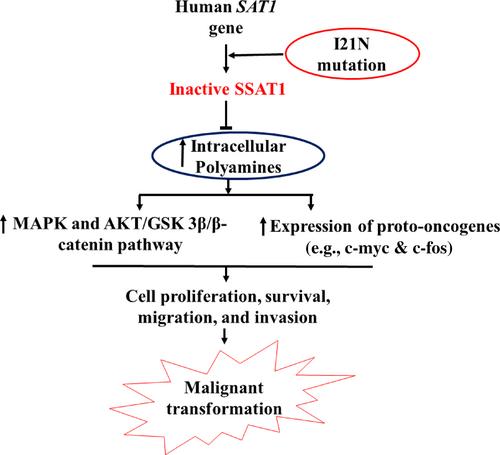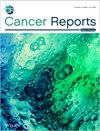Identifying Oncogenic Missense Single Nucleotide Polymorphisms in Human SAT1 Gene Using Computational Algorithms and Molecular Dynamics Tools
Abstract
Background
The human SAT1 gene encodes spermidine/spermine N1-acetyltransferase 1 (SSAT1), a regulatory biological catalyst of polyamine catabolism. Numerous essential biological processes, such as cellular proliferation, differentiation, and survival, depend on polyamines like spermidine and spermine. Thus, SSAT1 is involved in key cellular activities such as proliferation and survival of cells and mediates various diseases including cancer. A plethora of studies established the involvement of missense single nucleotide polymorphisms (SNPs) in numerous pathological conditions due to their ability to adversely affect the structure and subsequent function of the protein.
Aims
To date, an in silico study to identify the pathogenic missense SNPs of the human SAT1 gene has not been accomplished yet. This study aimed to filter the missense SNPs that were functionally detrimental and pathogenic.
Methods and Results
The rs757435207 (I21N) was ascertained to be the most deleterious and pathogenic by all algorithmic tools. Stability and evolutionary conservation analysis tools also stated that I21N variant decreased the stability and was located in the highly conserved residue. Molecular dynamics simulation revealed that I21N caused substantial alterations in the conformational stability and dynamics of the SSAT1 protein. Consequently, the I21N variant could disrupt the native functional roles of the SSAT1 enzyme.
Conclusion
Therefore, the I21N variant was identified and concluded to be an oncogenic missense variant of the human SAT1 gene. Overall, the findings of this study would be a great directory of future experimental research to develop personalized medicine.


 求助内容:
求助内容: 应助结果提醒方式:
应助结果提醒方式:


